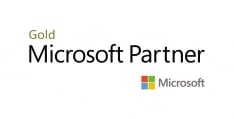Minneapolis is the larger of the two cities that are known as the Twin Cities (Minneapolis and St Pauls). It is the largest city in the state of Minnesota and has an estimated total population of around 410,000 people. Minneapolis and Saint Paul anchor the second-largest economic center in the Midwest. Education in the USA is provided by both public and private schools, and is mandatory until the age of 16. Pupils conducting their schooling within the USA start off at preschool, followed by elementary school, then middle school, before finishing at high school. At age 18, US citizens are able to engage in higher education. Higher education in the USA normally comes in the form of a college, undergraduate school, or a community college – that latter of which doesn’t normally cost anything to attend. Candidates participating in a course at a college will gain credits towards a bachelor’s degree, whilst candidates participating a course at a community college will be earning credits in order to achieve an associate’s degree. There are around 40,000 pupils enrolled in Minneapolis primary and secondary schools. There are around 100 schools including 45 elementary schools, 7 middle schools and 7 high schools. The Minneapolis school system has a graduate rate of 44% which makes it the 6th worst city from the country’s 50 biggest cities. The city is home to the main campus of the University of Minnesota. There are around 50,000 students attending this university, studying for undergraduate and graduate degrees. The school is ranked 123rd in the world rankings of universities, which makes it a top 50 ranked American school. The University of Minnesota was ranked highest in counseling and personnel services, chemical engineering, psychology, macroeconomics, applied mathematics and non-profit management. At The Knowledge Academy we offer over 50,000 classroom based training courses in the United States, including popular locations such as Minneapolis.
Free Wi-Fi
To make sure you’re always connected we offer completely free and easy to access wi-fi.





































 Back to course information
Back to course information




 If you wish to make any changes to your course, please
If you wish to make any changes to your course, please

